At the moment, the expert estimates the number of civilian prisoners of war to be at least 2 thousand hostages and divides them into 4 categories:
“First: those who served previously under contract, or drafted by age in the ATO (Anti-Terrorist Operation in the East of Ukraine). We know about two Ukrainians in the pre-trial detention center in Donetsk, who served in Shyrokyne, near Mariupol. Shyrokyne was not an area of combat operations at that time. Nevertheless, they are accused of opposing the Russian “SWO” and crimes against the people of Donbas. Those who had previously participated in the ATO have a much higher chance of being equated with servicemen and being released as part of the exchange.
The second category is more numerous: these are men who are not only not in the military, but who have never served. The third is women and young girls, such as the teacher from Chernihiv region, Viktoria Andrusha, who have nothing to do with combat operations. There is at least fragmentary confirmed data on prisoners from these three categories.
The fourth category is those about whom there is no information. They may have been killed in territories temporarily outside of Ukrainian control, in Kyiv, Sumy, Chernihiv, Kharkiv and other regions, or illegally captured and died after interrogation, torture and abuse in quasi-republics, prisons, detention centers and prisons of the Russian Federation.
According to the General Staff, prisoners in Russia are held in very poor conditions, tortured with tasers during interrogations and constantly beaten. There are more people in the cells than there are places. Fourteen people can be held in a six-person cell. There is no medical care.
The full version of the interview with Irina Badanova is available at the link in Russian.
The post “They are kept in jail in order to blackmail Ukraine” first appeared on CivilMPlus.]]>
The searches are being carried out as part of the case on the “rehabilitation of Nazism”, the organization is charged with having in its lists of those oppressed during the Soviet era, the names of three persons who collaborated with the Nazis during World War II.
The International independent civil society platform CivilMPlus considers such actions illegal. They demonstrate the openly dictatorial nature of Vladimir Putin’s regime, which tries in vain to hide political persecution behind formal legal pretexts.
Memorial is one of the founders of the CivilMPlus platform.
In December 2021, a Russian court liquidated Memorial for violating the law on “foreign agents” and “justifying terrorism and extremism.” “Memorial International” investigated the crimes of the totalitarian regimes of the 20th century, sought the rehabilitation of the repressed and assistance to their families, while the “Memorial” Human Rights Center supported political prisoners in Russian prisons, including Ukrainians. Oleg Orlov, who is one of the founders of Memorial, was active in human rights work during the war in Chechnya.
In 2022, Memorial became one of the winners of the Nobel Peace Prize. In 2009, Orlov became a laureate of the Andrei Sakharov Prize of the European Parliament “For Freedom of Thought” (2009).
The post Statement regarding searches at homes of Memorial employees in Russia first appeared on CivilMPlus.]]>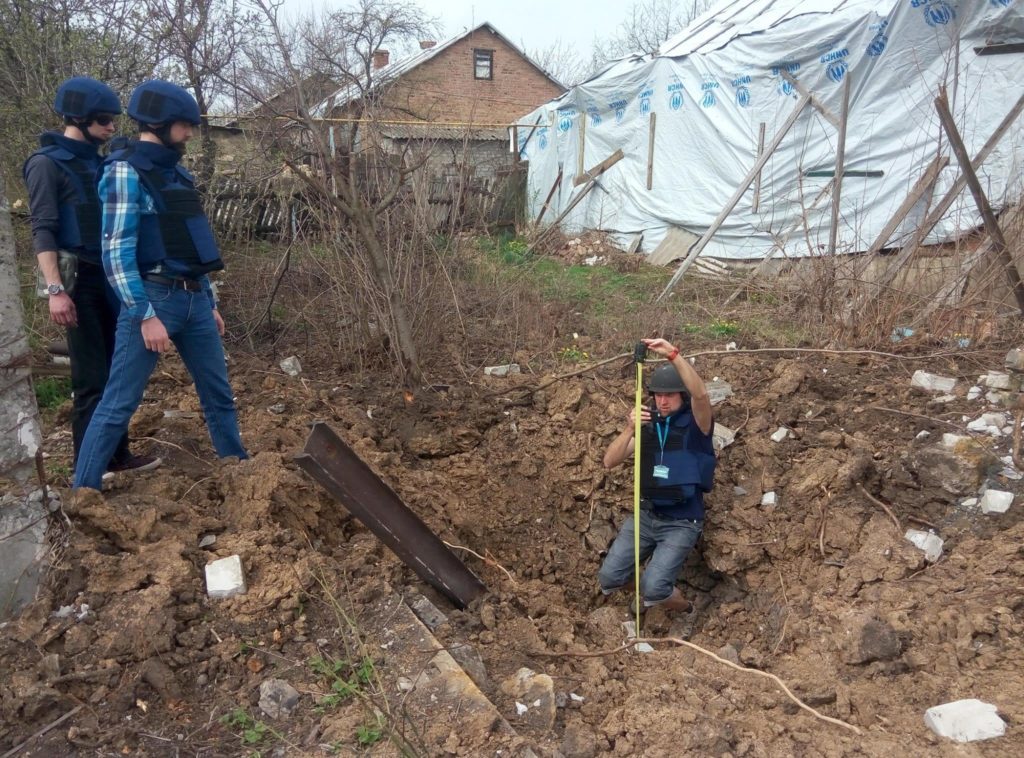
As noted by the Committee, Truth Hounds document international crimes systematically, collecting witness testimonies and other evidence to contribute to investigations by the International Criminal Court (ICC), Ukrainian authorities, and investigators in other states. In their work, the organisation combines open-source intelligence (OSINT) with professional on-site field work.
CivilMPlus thanks the Truth Hounds for their important work and congratulates on the well-deserved award!
By the way, Truth Hounds recently prepared a reference book “War Crimes: An Investigative Methodology for NGOs”, designed to help, first of all, non-governmental organisations documenting war crimes.
The post Truth Hounds received the 2023 Sakharov Freedom Award for documenting war crimes first appeared on CivilMPlus.]]>Inspired by the strength, resilience and courage of Ukrainian women, we asked Nika to write a letter to her last year self.
”
Hi Nika
Today is March 8, 2023, exactly one year since you left your hometown, your dear Sloviansk. A year that changed you so wildly that it’s hard for you to even imagine it at the moment. Now you are leaving home and your eyes are full of tears from confusion, from not understanding what to do next and where you will end up. You ended up in Ivano-Frankivsk, in the city you so dreamed of getting to know and did it a year before, and then you wanted to live there for 2-3 months. You always told yourself “Be afraid of your wishes” and here it came true. Frankivsk became your second home.
You’re scared right now, because you don’t know what will happen to your Sloviansk, you are scared for your parents. You are a bit scared for yourself, but in fact you can’t even imagine how bravely you’ve endured this year. A year on the road, because you had to look for a home several times. The station became your second home, because your family is scattered all over the country and now you are constantly going somewhere. Everything you ever wanted so much, the war forced you to make up for it in seven-mile steps.
This year strengthened you tremendously and proved 100 percent that you should rely only on yourself and your inner strength. No, you will not be alone, there have never been so many people around you, as before, who love you and are close to you. There were people who helped. There were opportunities that came around. Although, no, it was you who found them, despite everything that was happening around.
Yes, now you won’t be able to go out for coffee with your best friend, because there are a thousand kilometers between you. But you will be so proud of her, of how resilient and unbreakable she is, because she will become the mouthpiece and save the people who remained in your home region of Donetsk. And you will do everything to meet her at your favorite coffee shop, even in the midst of a war.
Unfortunately, your anxiety will return and you will have to deal with it again. But now you know for sure that you are very strong and won’t let it break you. Your eyes no longer show signs of confusion and fear, and to some they even seem happy, although you sometimes allow yourself to be filled with sadness and longing for home.
I have not often said that I am proud of you, but after this year I can finally say that you are my pride and I thank you for the time we’ve spent together in helping others, in work, in loving ourselves and the people around us, in mercy and honesty, and most importantly – in joining the fight for our victory. And now you are absolutely sure that it will come soon.
Nika
“
The post A year on the road: A letter from a civic activist to herself at the beginning of the invasion first appeared on CivilMPlus.]]>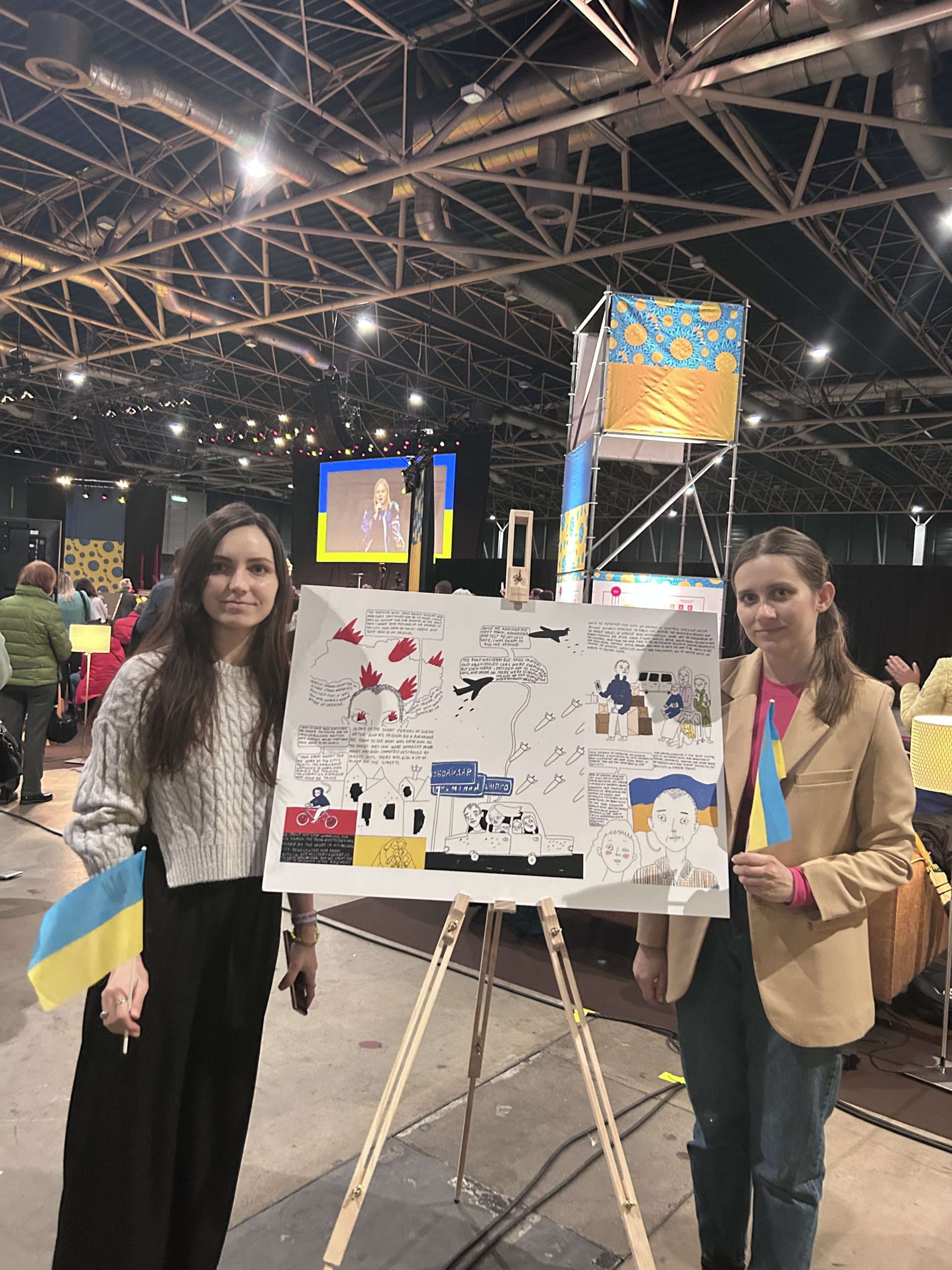
On 24 February in Utrecht we together with local organisation Vitaln’ya presented the exhibition at an event dedicated to the anniversary of the start of the full-scale Russian invasion of Ukraine. Representatives of CivilMPlus Secretariat Yuliya Erner and “Drukarnia” Civil Society Centre” (Ukraine) Kapitalina Pasikova and Nika Perepelitsa visited the event to tell stories of Ukrainian civil society in times of war.
The day before, on 23 February, the exhibition was shown at the Trade Union house in Paris  during a meeting organised by the French Branch of the RESU/ENSU (European Network in Solidarity with Ukraine). The French version of the exhibition was created by the organisation Ukraine CombArt with support of the Assemblee Europeenne Citoyens – AEC.
during a meeting organised by the French Branch of the RESU/ENSU (European Network in Solidarity with Ukraine). The French version of the exhibition was created by the organisation Ukraine CombArt with support of the Assemblee Europeenne Citoyens – AEC.
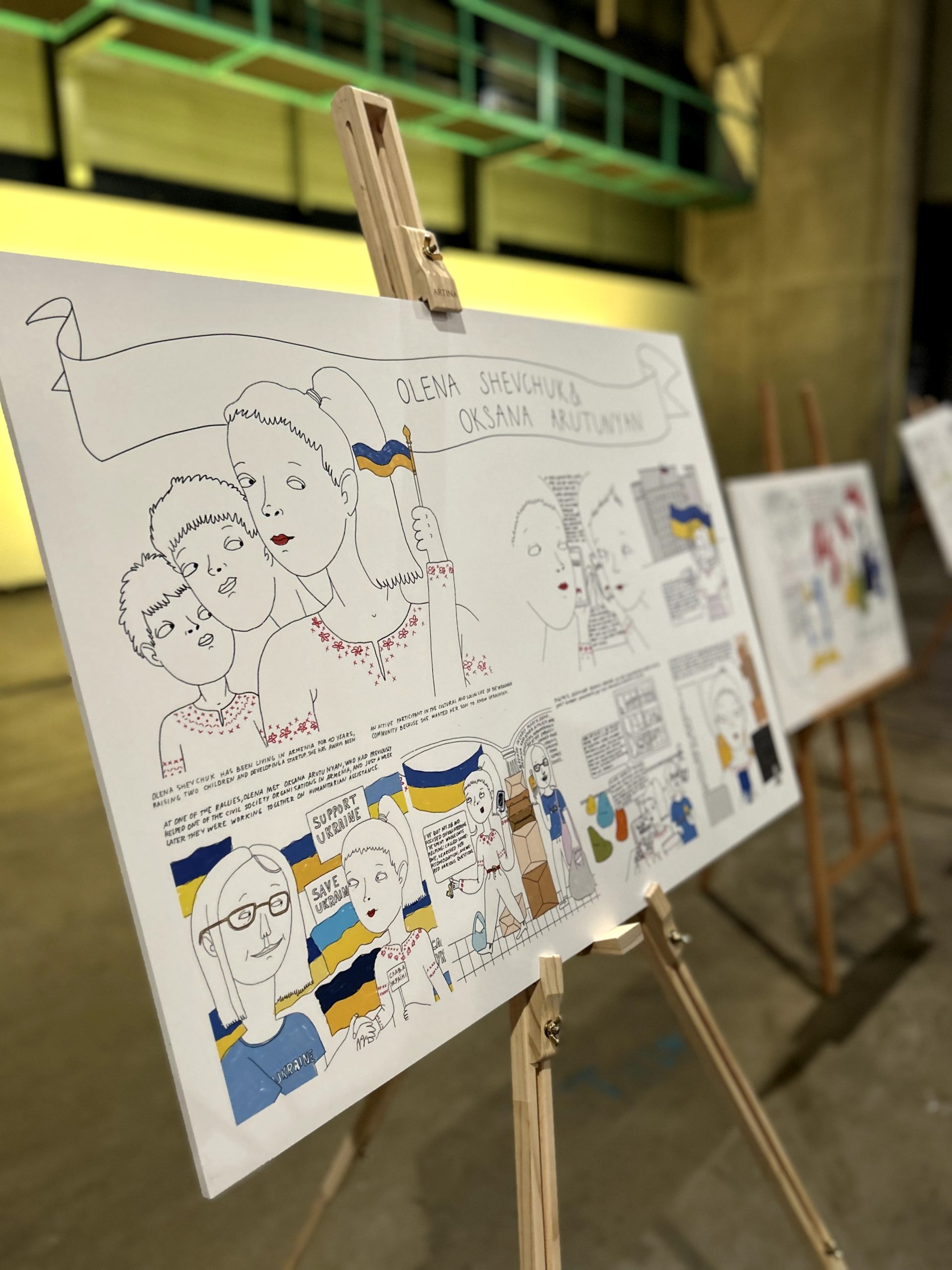
The exhibition consists of visual stories of real people who counter Russia’s aggression in their own way, by providing for those who fight, bringing humanitarian aid, taking care of the refugees, lobbying for more active support for Ukraine by the international community, working with the consequences of the war and post-war reconstruction of the country. The stories of heroes and heroines demonstrate the range of activities that people are involved in to play their part and help others.
With these stories, we want to motivate the international community to support Ukraine, and the societies of the countries of the world to be ready to sacrifice some of their personal comfort in order to help others.
The artist is Masha Vyshedska.
The exhibition was created with the support of the German Ministry of Foreign Affairs.
The post Exhibition about activists in Russia’s war against Ukraine in Utrecht and Paris first appeared on CivilMPlus.]]>- The policy of imperial revanchism, deliberately pursued by the Russian state under the leadership of President Putin, is a serious risk to the democratic world order and security in Europe and throughout the world.
- The lack of a clear response from international institutions to violations of international agreements encourages new aggression and exacerbates its consequences.
The war that Russia has been waging against Ukraine since 2014 has already claimed the lives of thousands of people in Ukraine. The Russian leadership continues to grossly violate numerous international norms and agreements. Among other things, the Russian authorities and their supporters are responsible for the abduction and illegal detention of Ukrainian citizens, torture, murder, the creation of filtration camps, the removal of Ukrainian children to the Russian Federation and their adoption there. Tens of thousands of war crimes and violations of international humanitarian norms have been recorded, which were committed by the military personnel of the Russian army during the occupation of the territories of Ukraine.
The work of eliminating the numerous consequences of the war, such as demining territories, restoring infrastructure, helping traumatised people and restoring the rights of victims of the war, will require serious investments by the Ukrainian state and the international community for many decades to come.
The international platform CivilMPlus stands in solidarity with the Ukrainian people in their struggle for freedom, independence and democracy and calls on the international community for collective active and diverse support of Ukraine based on the following principles:
- The restoration of Ukraine within the borders of 1991 is a necessary condition for the end of the war.
- Those guilty of crimes in the context of Russia’s war against Ukraine must be brought to justice.
- The establishment of a special tribunal and the use of universal jurisdiction tools to bring the perpetrators to justice in the context of Russia’s war against Ukraine is an important signal of the viability of the international justice system and demonstrates the political will of leading democratic leaders.
- International financial and technical support for the national justice system of Ukraine, also including the activities of civil initiatives that document the war crimes of the Russian army in Ukraine, will allow for a quality process of restoring justice and investigating a large array of crimes at the national level.
- Russian citizens who support the aggressive imperial policy of the Putin regime are collectively responsible for the crimes of the Russian state in the war against Ukraine.
- Ukraine is a European democracy.
- Despite the war, Ukraine is working to rebuild its destroyed infrastructure, prepare for post-war reconstruction processes, and continue to develop democratic institutions on the path to European integration. The support of the EU and the participation of civil society in this process is an important guarantee for the success of reforms and stabilization.
- The processes of restoration and normalization of social and political life in the liberated Ukrainian territories should take into account the principles of the rule of law and respect for human rights.
- Citizen participation in local government, the development of local civic activism and entrepreneurial activity are important support for decentralization reforms, the restoration of effective public administration structures and social peace.
- The full involvement of Ukrainian civic activists in international networks and the strengthening of existing international partnerships is an important factor for developing shared values and continuing the process of democratization in Ukraine.
4. The demilitarization of the regime in Russia, the democratization of the country, the rejection of the imperial ideology and the real right to self-determination will be important elements to avoid the resumption of Russia’s expansionist policy in the future.
—
The CivilMPlus platform is an association of independent non-governmental organizations and experts from different countries and with different views that supports the independence and territorial integrity of Ukraine within its internationally recognized borders. The actions and positions of the platform participants are based on the values of freedom and democracy, which Ukrainians are defending today.
—
The text of the statement does not necessarily reflect the position of all CivilMPlus member organizations.
For additional information or media inquiries, please contact Artem Danylchenko, Communications Coordinator – [email protected].
The post CivilMPlus platform statement on the anniversary of the start of the full-scale Russian invasion first appeared on CivilMPlus.]]>Ukraine’s strong commitment to European integration was a key impetus for democratic changes and reforms in the country before 2014 and even more so after.
Ukraine’s resistance against Russian military aggression is a struggle for independence and sovereignty. Ukrainian warriors are protecting not only their families and their state. Ukrainians are ready to risk and lose their lives for freedom and democracy. They are paying a high price for their European aspirations and they want to be a part of the European family along with other successful and prosperous democracies one day.
The EU accession process for Ukraine and launch of the corresponding negotiations should start as soon as possible after Kyiv implements the European Commission’s recommendations and receives positive assessment of its reforms. The start of the negotiating process will greatly contribute to the resilience of Ukrainian society and its ability to resist Russian aggression. To achieve this, Ukraine needs strong and multifaceted support from its international partners. The situation in Ukraine should be a central focus for the EU and world authorities, civil society and media.
Military assistance
We are convinced that it is crucial to support Ukraine in defending itself against Russian aggression. The EU’s enduring commitment to military support for Ukraine and military assistance provided via the European Peace Facility (EPF) are incredibly helpful to Ukraine’s resistance. The EU decision to increase its overall funding by €2 billion in 2023 will help to save the lives of both the military and civilians in Ukraine. We are grateful for the decision to set up the EU Military Assistance Mission in support of Ukraine (EUMAM Ukraine). Training 15,000 Armed Forces of Ukraine personnel will increase the strength of the Ukrainian resistance and help to enhance the capability of the AFU to conduct military operations effectively.
Financial support and sanctions
For Ukraine to be able to predictably plan its budget, a long-term program is required that indicates possible amounts and a schedule of financial support tranches that the EU can guarantee, commensurate with Ukraine’s needs. We appreciate the European Commission’s decision to allocate €18 billion of support in the form of loans to Ukraine for 2023. Stable, regular, and predictable financial assistance will help to cover a significant part of Ukraine’s short-term funding needs. We expect that this instrument will be accompanied by reforms inside Ukraine.
Sanctions against Russia are an essential element of international support for Ukraine and the world’s effort to limit the Kremlin’s capabilities to wage war and eventually to force it to stop the invasion. It is important to ensure that the sanctions are impossible to avoid.
Nuclear and ecological security
Russia captured the largest nuclear power plant in Europe – the Ukrainian Zaporizhzhia NPP – and is using it to build up and manipulate the public’s fear of a nuclear catastrophe. We support the EU’s condemnation of the annexation of the NPP by Russia and believe that there is an urgent need for the world community to find ways to ensure the safety of the Zaporizhzhia NPP, as well as other critical infrastructure facilities close to the frontline, like the dams of hydroelectric power plants and others. Damage to these objects can lead to large-scale ecological disasters.
Sectoral reforms
The EU is significantly supporting Ukraine’s economy which has been hit hard by the Russian aggression. We expect the EU decision on trade liberalisation and the suspension of protective measures against Ukrainian goods to be extended until at least 2024. We expect progress in the introduction of the industrial visa-free regime between the EU and Ukraine and the conclusion of the Agreement on Conformity Assessment and Acceptance of Industrial Goods (ACAA). The ACAA Agreement will provide that trade in goods in the sectors covered by it shall be conducted on the same terms as between the EU Member States. It will help to increase Ukrainian exports of high value-added goods not only to the European Union, but also to other countries. We expect Ukraine to join the EU’s free-roaming network. Once adopted, people traveling from Ukraine to the EU and EU travelers in Ukraine will be able to make phone calls, send text messages, or use mobile data without extra charges just like between EU member countries.
Reconstruction
The EU should play a leading role in the post-war reconstruction of Ukraine. This reconstruction should go hand in hand with EU integration. The success of restoration will depend on Ukraine’s ability to export to the EU market and modernise its economy in line with the EU regulatory and legal environment. Reconstruction and economic recovery will require massive aid which will only be spent effectively if reforms in Ukraine continue.
The reconstruction process should be implemented in close cooperation with local communities that have suffered due to the war. At least 50% of the restoration efforts should be carried out by local companies.. A transparent mechanism for monitoring reconstruction funds should be established. There should be no chance that Ukrainian oligarchs will be able to use the reconstruction process to increase their capital and influence. Local ownership and community participation are important sources of Ukraine’s resilience and are key to making the results of reconstruction, modernisation, and recovery sustainable.
We call for the reconstruction to be governed by a dedicated donor coordination mechanism with strong Ukrainian government and civil society participation. Civil society actors should be closely consulted when designing and implementing the reconstruction and recovery processes. Cooperation with civil society should form the core of a human-centric approach to resilience and recovery.
The frozen assets of the Russian Central Bank, sanctioned Russian individuals and companies should be seized and transferred directly to Ukraine to co-fund the reconstruction. To speed up the EU’s ability to seize and use frozen assets for aid and recovery, the European Commission needs to proceed promptly with proposals to make sanctions evasion a criminal offense in all member states of the EU.
Economic recovery and the successful governance of Ukraine during and after the war will only be possible if the government pursues economic reforms, de-oligarchisation, anti-corruption efforts, and the decentralisation of decision-making. We call on the Ukrainian government to commit to the implementation of necessary reforms despite the ongoing war.
The return of refugees from European countries to Ukraine will guarantee the workforce for the reconstruction, the restoration of the social fabric and the further peaceful development of the country. Programs encouraging the return of Ukrainian citizens back to Ukraine should be developed in close cooperation with civil society.
A separate element of the recovery process that has already started is the reintegration of the territories of Ukraine that were liberated from Russian occupation. There should be a strategy on how to reintegrate these areas and return the rule of law and order there.
Justice and accountability for war crimes
Russia’s aggression against Ukraine is a violation of international law and a violation of OSCE principles. We support the resolution of the European Parliament, in which it urges the EU, in close cooperation with Ukraine and the international community, to push for the creation of a special international tribunal to prosecute Russia’s political and military leadership and its allies. Finally, we also call on the European institutions to support efforts to document the war crimes committed. Together with ensuring the personal safety of Ukrainians, the restoration of justice is essential for sustainable peace and security in the whole Europe.
The post Secretariat of CivilMPlus on the 24th EU-Ukraine Summit, to be held on February 3, 2023, in Kyiv first appeared on CivilMPlus.]]>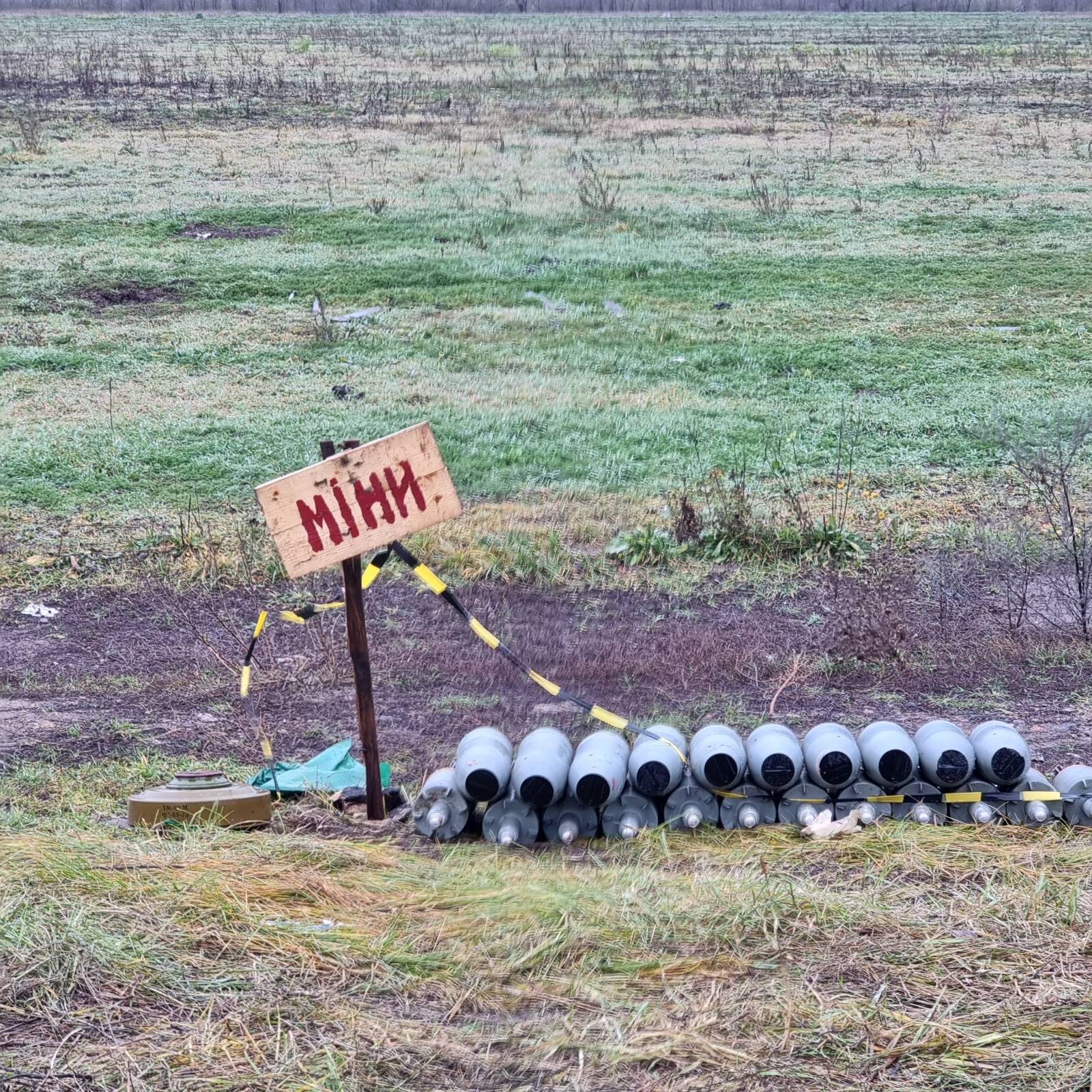
An International Monitoring Mission organised by the CivilMPlus member – Austausch e.V. together with “Vostok SOS” Charitable Foundation (Ukraine) and experts from Germany, France and the Czech Republic in December 2022 visited recently liberated areas of Kherson and Mykolaiv regions in Ukraine, as well as frontline communities of the Donetsk and Kharkiv Oblast.
Civil society representatives interviewed civilians in villages and cities that had been partially destroyed, and contaminated with land mines. They met those who survived the Russian occupation and collected information on the humanitarian needs of these parts of Ukraine.
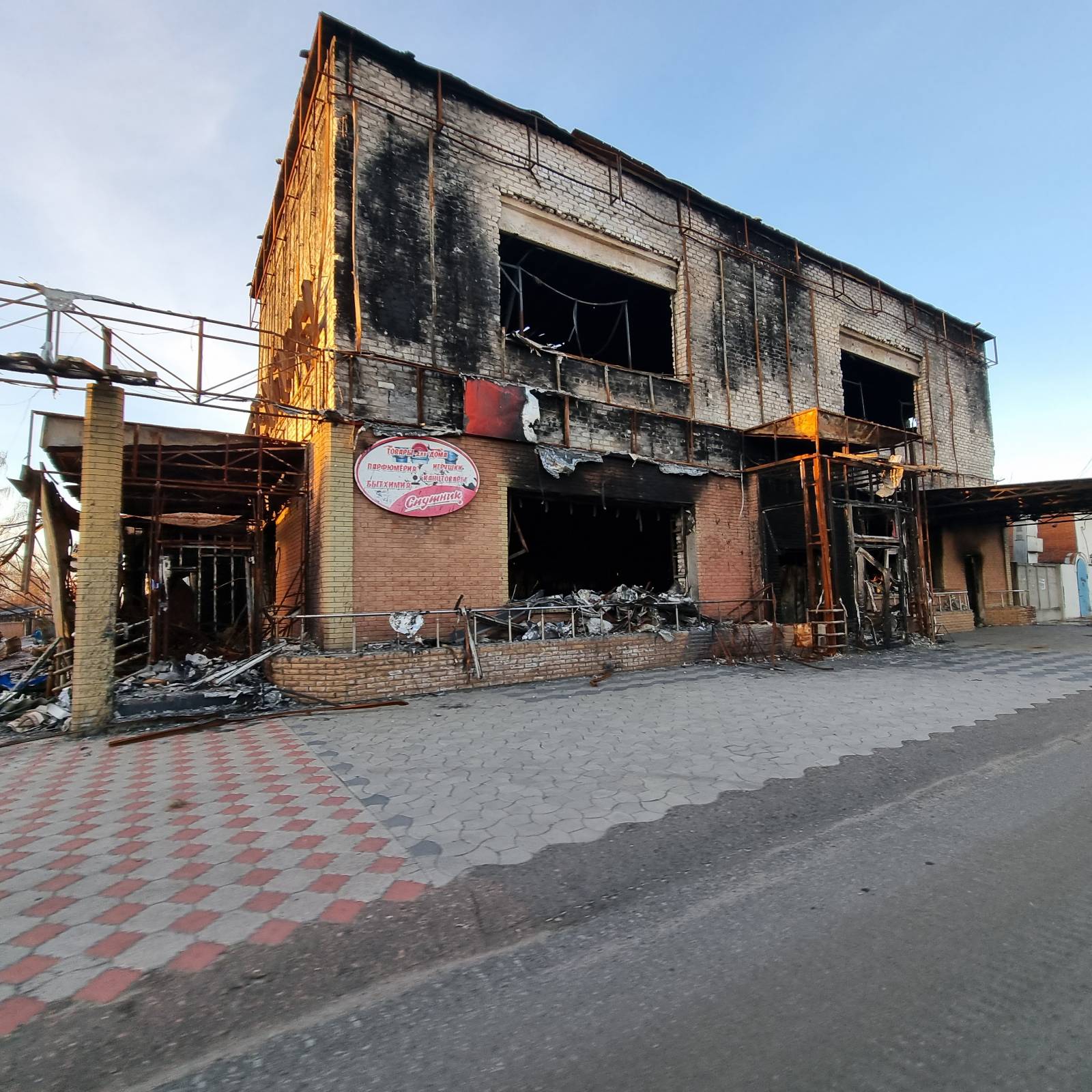
Based on the visit, the experts of the Mission prepared a detailed report for decision makers and civil society stakeholders, that can be downloaded here. The findings of the mission, which was organised with the support of the German Ministry of Foreign Affairs, have already been presented in Paris, Berlin, Leipzig and Prague.
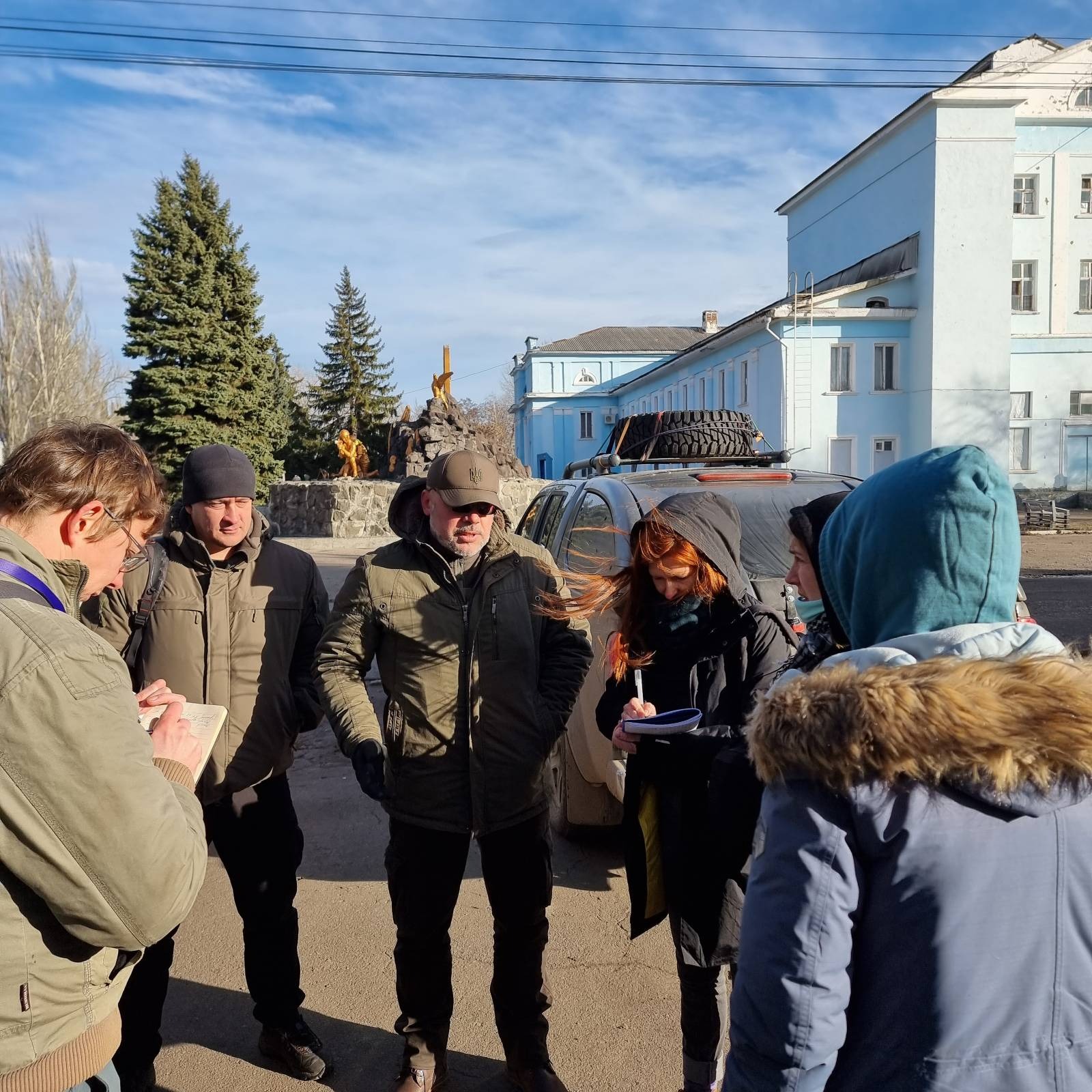
Two of the messages that the Mission participants want to deliver is that Ukraine needs comprehensive support and solidarity from its international partners in order to effectively deal with and end the grave humanitarian crisis caused by the Russian invasion. A better coordination of humanitarian efforts in frontline communities can help to improve the situation of civilians through this hard winter.
The post War and Winter: Monitoring of problems and needs in East and South-East Ukraine first appeared on CivilMPlus.]]>